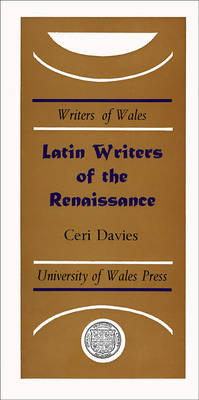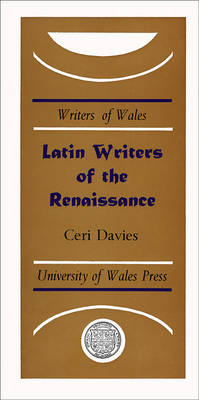
- Retrait gratuit dans votre magasin Club
- 7.000.000 titres dans notre catalogue
- Payer en toute sécurité
- Toujours un magasin près de chez vous
- Retrait gratuit dans votre magasin Club
- 7.000.0000 titres dans notre catalogue
- Payer en toute sécurité
- Toujours un magasin près de chez vous
6,95 €
+ 13 points
Description
From the Introduction to Latin Writers of the Renaissance: "Great is the solemn mystery of the Latin language, truly great its divine majesty: through so many centuries it has been preserved, with holy and religious awe, by foreigners, by barbarians, by enemies, so that it behoves us Romans not to grieve, but to rejoice and glory, while the earth itself gives ear... For wherever the Roman tongue has dominion, there too is the Roman Empire. This fulsome eulogy, part of one of the greatest paens of praise composed for any language, comes from the pen of the fifteenth-century Italian humanist and scholar, Lorenzo Valla. For Valla the Latin tongue was eternal, and its progress throughout western Europe was as of a god sent down from heaven. Like Petrarch too, whose imagination was fired by the sweetness and sonority of Latin words as they were found in the classical writings of Cicero and Virgil and Livy, Valla knew the enchanting attraction of all that was bound up with the language of ancient Rome and he and his fellow humanists consciously set about restoring to the language that purity of expression which it had enjoyed in its greatest hour. It is a long way from the Italy of Valla to sixteenth and seventeenth-century Wales, and we must beware of being led by the 'Renaissance' label to look in Wales for all the features of humanism in fourteenth and fifteenth-century Italy. Nevertheless, between 1550 and 1640, a small, and far from homogeneous group of Welshmen presents us with a notable illustration of that sway of the Roman tongue of which Valla boasted. These Welshmen also shared in many of the ideals which had permeated from Italy through northern Europe since the end of the fifteenth century. It is the work of some of these Latin writers of Wales that this essay aims to describe and discuss."
Spécifications
Parties prenantes
- Auteur(s) :
- Editeur:
Contenu
- Nombre de pages :
- 63
- Langue:
- Anglais
- Collection :
Caractéristiques
- EAN:
- 9780708307922
- Date de parution :
- 01-01-81
- Format:
- Livre broché
- Format numérique:
- Trade paperback (VS)
- Dimensions :
- 127 mm x 248 mm

Les avis
Nous publions uniquement les avis qui respectent les conditions requises. Consultez nos conditions pour les avis.






